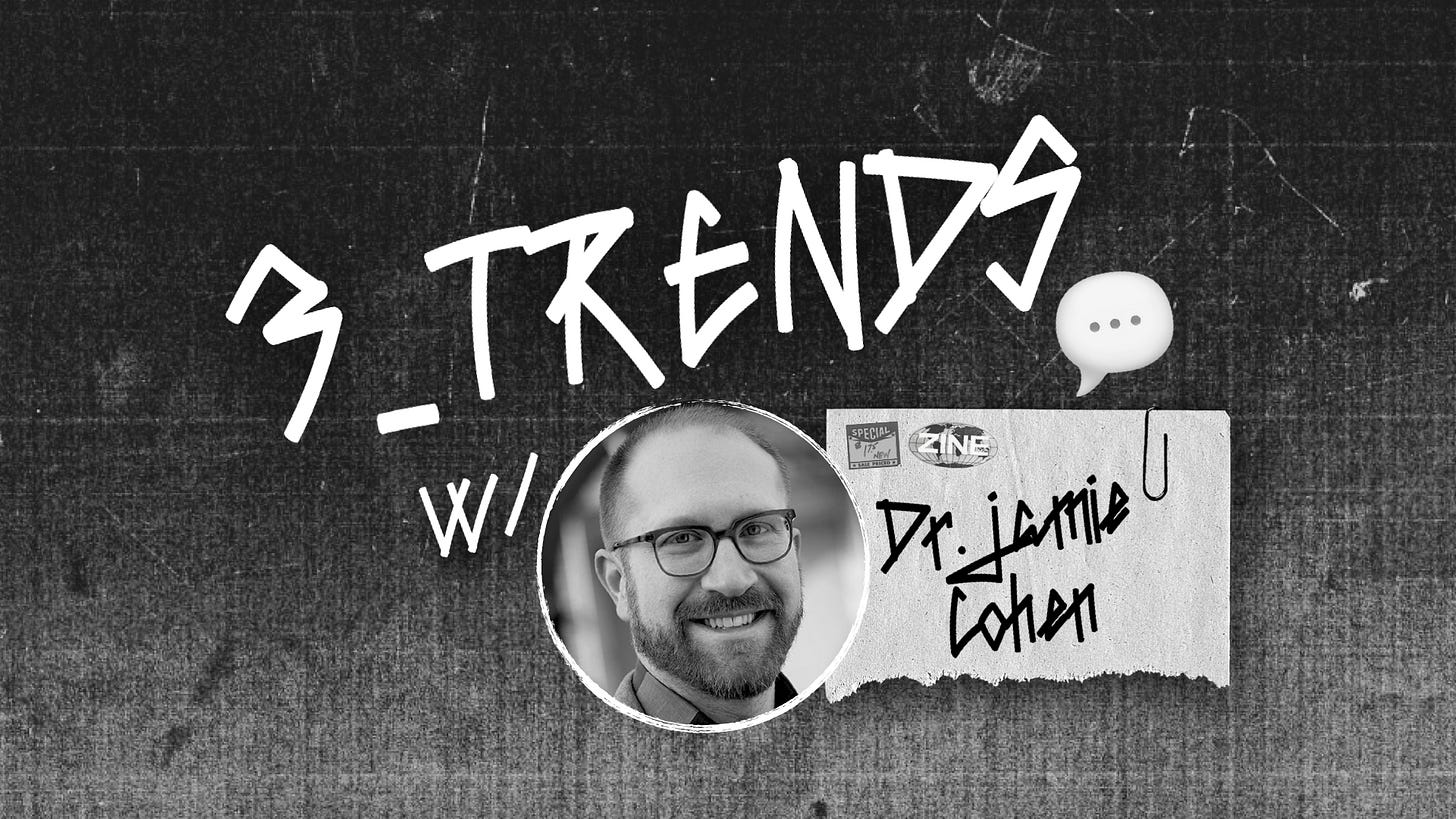3_TRENDS_Vol.4: Dr. Jamie Cohen: Digital Carbon Footprints, Retcon + Open Community Tools
Vol.4
3_TRENDS is an interview series with the world's leading cultural researchers and thinkers, sharing their favorite overlooked trends.
Jamie Cohen (JC) has a PhD in Cultural and Media Studies with a focus on immersive tech, memes and visual culture. Jamie founded and directed a college degree in New Media, wrote a guidebook on the subject, and promot…


